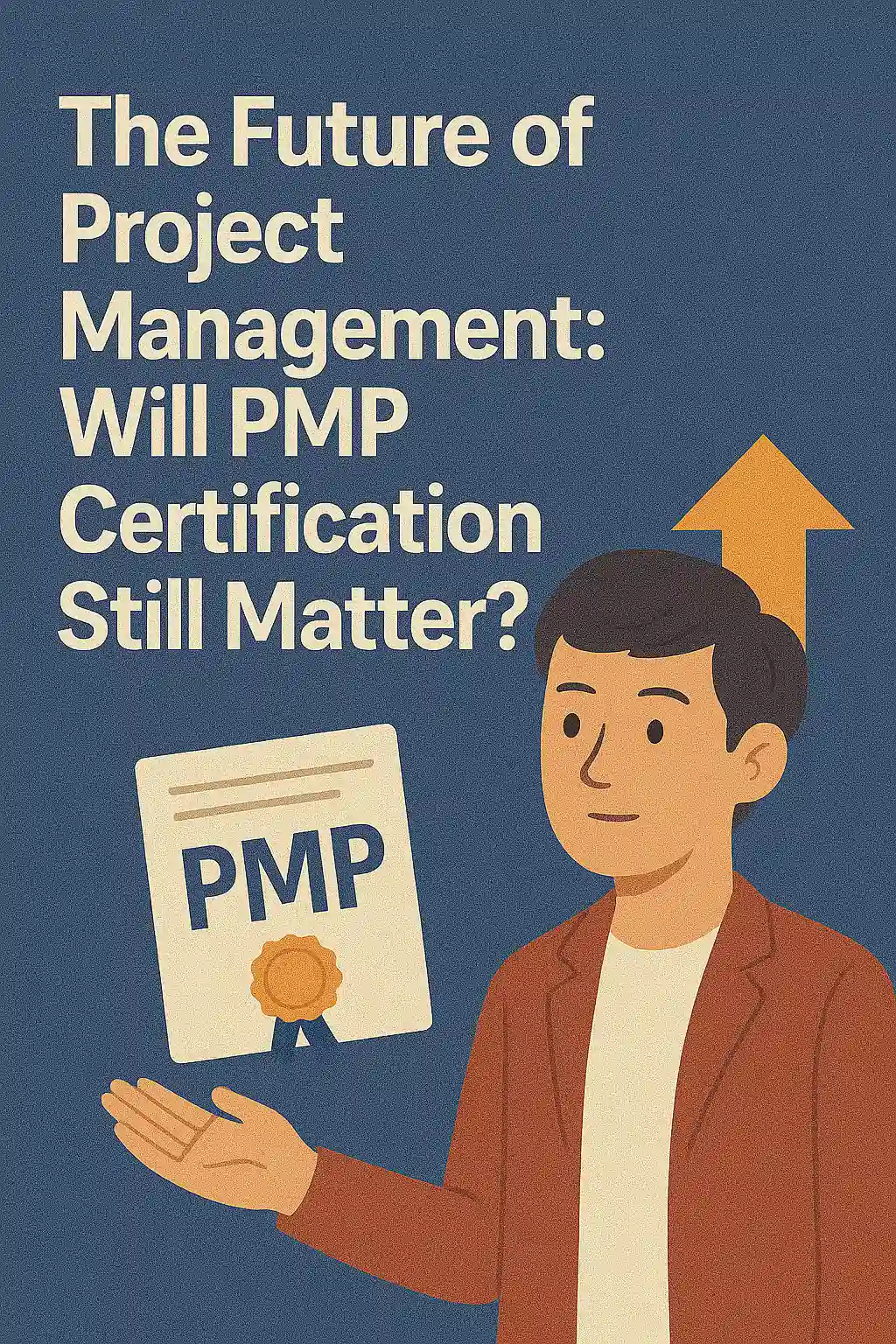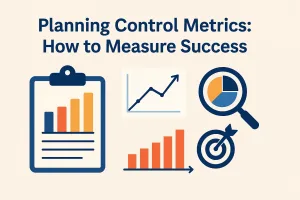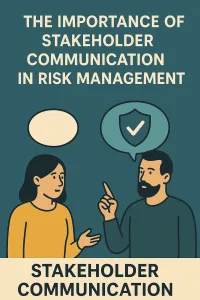Introduction
The Project Management Professional (PMP) certification stands as a hallmark of expertise and professionalism. Issued by the Project Management Institute (PMI), this certification is recognized globally and signifies that an individual possesses the requisite knowledge, skills, and experience to lead and direct projects effectively. The PMP certification is not merely a credential; it is a testament to a project manager’s commitment to the profession and their ability to navigate complex project environments.
The importance of PMP certification in traditional project management cannot be overstated. It serves as a benchmark for project management excellence, often leading to enhanced career opportunities, increased earning potential, and greater job security. According to PMI’s findings, project managers with PMP certification can earn up to 20% more than their non-certified peers, highlighting the financial benefits associated with this credential [5]. Furthermore, PMP certification is often a prerequisite for leadership roles within organizations, such as Project Management Office (PMO) directors, where professionals are expected to establish project management guidelines and align project operations with corporate goals [10].
However, as the landscape of project management continues to evolve, driven by technological advancements and changing organizational needs, the relevance of PMP certification is being scrutinized. The rise of agile methodologies, digital project management tools, and a focus on soft skills are reshaping the skills required for successful project management. This shift raises important questions: Will the PMP certification maintain its value in this new environment? How will project managers adapt to these changes while leveraging their certification?
In this blog section, we will explore these dynamics, examining the future of project management and the ongoing significance of PMP certification in an ever-changing industry.
The Value of PMP Certification: A Historical Perspective
The Project Management Professional (PMP) certification has long been regarded as a benchmark for project management excellence. Since its inception, the PMP certification has evolved significantly, adapting to the changing dynamics of the industry and the needs of project managers. Here’s a closer look at its historical significance and the value it continues to provide.
Evolution of the PMP Certification
- Inception and Growth: The PMP certification was introduced by the Project Management Institute (PMI) in 1984. Initially aimed at establishing a standard for project management practices, it has grown to become the most recognized certification in the field. Over the years, the certification has undergone several updates to reflect the latest methodologies and best practices in project management, including the integration of Agile and other frameworks [6][12].
- Global Recognition: Today, there are over 470,000 PMP-certified professionals worldwide, making it a prestigious credential that signifies a high level of expertise and commitment to the profession [7]. This widespread recognition has helped establish a common language and set of standards across various industries, enhancing collaboration and efficiency in project execution.
Statistics on PMP Certification Holders and Career Advancements
- Career Impact: Numerous studies have shown that PMP certification holders often experience significant career advancements. For instance, PMPs tend to earn higher salaries compared to their non-certified counterparts. Reports indicate that PMP-certified professionals can command salaries that are, on average, 20% higher than those without the certification [13][14].
- Job Opportunities: The certification not only enhances earning potential but also opens doors to a wider range of job opportunities. Employers frequently prefer candidates with PMP certification, as it demonstrates a commitment to the profession and a solid understanding of project management principles [14][15].
Case Studies of Successful Project Managers
- Real-World Success Stories: Many successful project managers attribute their career growth to the PMP certification. For example, a project manager in the IT sector reported that obtaining the PMP certification allowed her to lead larger projects and teams, ultimately leading to a promotion to a senior management position. This transition was facilitated by the skills and knowledge gained through the certification process, which equipped her to handle complex project challenges effectively [11].
- Industry Leaders: Another case involves a project manager in the construction industry who leveraged his PMP certification to implement standardized project management practices across his organization. This not only improved project delivery times but also enhanced stakeholder satisfaction, showcasing the tangible benefits of the certification in driving organizational success [9].
Current Trends in Project Management
As the field of project management continues to evolve, several key trends are reshaping practices and influencing the relevance of certifications like the Project Management Professional (PMP). Understanding these trends is crucial for current project managers and industry leaders who are navigating this dynamic landscape.
Rise of Agile Methodologies
The adoption of agile methodologies has significantly impacted traditional project management approaches. Agile emphasizes flexibility, iterative progress, and customer collaboration, which contrasts with the more rigid structures of traditional project management. This shift has led to:
- Increased Adaptability: Project managers are now required to be more adaptable, responding quickly to changes and stakeholder feedback. This agility is essential in fast-paced environments where project requirements can evolve rapidly [6].
- Hybrid Approaches: Many organizations are adopting hybrid models that combine agile and traditional methodologies, allowing for a more tailored approach to project execution. This trend highlights the need for project managers to be proficient in both methodologies to effectively lead diverse teams [14].
Emphasis on Soft Skills and Leadership Qualities
In modern project management, there is a growing recognition of the importance of soft skills and leadership qualities. As projects become more complex and team dynamics evolve, the following aspects are gaining prominence:
- Communication and Collaboration: Effective communication is critical for project success. Project managers must foster collaboration among team members and stakeholders, ensuring that everyone is aligned with project goals [13].
- Emotional Intelligence: The ability to understand and manage emotions—both one’s own and those of others—is increasingly valued. Project managers with high emotional intelligence can navigate conflicts and motivate their teams more effectively [12].
- Leadership in Strategy Execution: Project managers are taking on more strategic roles, contributing to broader organizational goals rather than merely overseeing project tasks. This shift necessitates strong leadership skills to guide teams through complex challenges [11].
Technological Advancements
Technological innovations are transforming project management practices, making it essential for project managers to stay updated on the latest tools and trends. Key advancements include:
- Artificial Intelligence (AI): AI is being integrated into project management tools, enhancing decision-making processes and automating routine tasks. This allows project managers to focus on higher-level strategic planning and team management [2][4].
- Digital Transformation: The rise of digital tools is facilitating better resource optimization and data-driven decision-making. Project managers are now leveraging big data to gain insights into project performance and trends, which is crucial for informed planning [8].
- Emerging Tools and Platforms: The project management software market is projected to grow significantly, reflecting the increasing demand for digital solutions that support remote collaboration and project tracking [8].
The Relevance of Certifications in an Evolving Landscape
In the rapidly changing field of project management, the relevance of certifications like the Project Management Professional (PMP) is a topic of considerable debate. As new methodologies and practices emerge, it is essential to analyze whether PMP certification continues to hold its value for current project managers and industry leaders.
Comparison of PMP with Other Emerging Certifications
The PMP certification, offered by the Project Management Institute (PMI), has long been regarded as a gold standard in project management. However, the rise of Agile methodologies and certifications such as Certified Scrum Master (CSM) has introduced new dynamics into the certification landscape.
- PMP Certification: Focuses on traditional project management principles, emphasizing a structured approach to managing projects across various sectors. It is recognized globally and is often seen as a benchmark for project management competence [9][10].
- Agile and Scrum Certifications: These certifications cater to the growing demand for flexibility and adaptability in project management. They emphasize iterative processes and collaboration, which are increasingly relevant in industries that require rapid responses to change [5][12].
While PMP certification provides a comprehensive understanding of project management processes, Agile and Scrum certifications offer specialized knowledge that can be more applicable in certain environments, particularly in tech and product development sectors. This diversification in certification options allows professionals to tailor their qualifications to their specific career paths and industry needs.
Industry Perspectives on the Importance of Certifications Versus Experience
The debate over the importance of certifications versus practical experience is ongoing. Many industry leaders argue that while certifications like PMP provide foundational knowledge, real-world experience is crucial for effective project management.
- Value of Experience: Employers often prioritize candidates with hands-on experience in managing projects over those with certifications alone. This perspective is particularly prevalent in industries where project dynamics are complex and require nuanced decision-making [3][14].
- Certification as a Complement: However, certifications can enhance a professional’s credibility and demonstrate a commitment to the field. They can serve as a differentiator in a competitive job market, especially for those who may lack extensive experience [9][11].
Discussion on the Necessity of Continuous Learning and Adaptation
In an era where project management methodologies are continually evolving, the necessity for continuous learning cannot be overstated.
- Adapting to Change: Project managers must stay abreast of new tools, techniques, and methodologies to remain effective. This includes not only pursuing certifications but also engaging in ongoing professional development through workshops, seminars, and online courses [6][13].
- Lifelong Learning Mindset: Embracing a mindset of lifelong learning is essential for project managers to adapt to the shifting landscape. As industries evolve, so too must the skills and knowledge of those leading projects. This adaptability can significantly enhance project success rates and overall career advancement [6][14].
Employer Expectations and Industry Standards
The relevance of PMP (Project Management Professional) certification continues to be a significant topic of discussion among current project managers and industry leaders. As organizations adapt to new methodologies and technologies, understanding how employers perceive PMP certification is crucial for professionals navigating their careers.
Insights from HR Professionals on Certification Requirements
Human Resources professionals often emphasize the importance of certifications like PMP in the hiring process. Many HR experts indicate that PMP certification serves as a benchmark for assessing a candidate’s knowledge and commitment to project management best practices. It signals to employers that the individual possesses a foundational understanding of project management principles and methodologies, which is increasingly important in a competitive job market [3][1].
Moreover, as the demand for certified project managers grows, HR professionals are more likely to prioritize candidates with PMP certification over those without it. This trend is particularly evident in industries where project management plays a critical role in operational success, such as IT, construction, and healthcare [2][8].
Impact of Industry Standards on Hiring Practices
Industry standards significantly influence hiring practices, with many organizations adopting PMP certification as a preferred qualification. The certification not only demonstrates a candidate’s expertise but also aligns with the evolving standards set by professional bodies and industry associations. As project management methodologies shift towards agile practices, the PMP certification has adapted to include these elements, making certified professionals more versatile and valuable to employers [5][9].
Additionally, companies are increasingly recognizing the importance of maintaining market relevance through certifications. Employers often look for candidates who are not only experienced but also up-to-date with current trends and practices in project management. This expectation reinforces the value of PMP certification as a means of ensuring that project managers are equipped with the latest knowledge and skills [9][10].
Examples of Companies Prioritizing PMP Certification Versus Experience
While experience remains a critical factor in hiring decisions, many organizations are placing a higher emphasis on PMP certification. For instance, large corporations in sectors such as finance and technology often list PMP certification as a requirement in their job postings, indicating a clear preference for certified candidates [2][8].
Conversely, some companies may prioritize hands-on experience over formal certification, particularly in smaller organizations or startups where practical skills and adaptability are highly valued. However, even in these environments, having a PMP certification can still provide a competitive edge, as it demonstrates a commitment to professional development and adherence to industry standards [1][4].
Future Outlook: Will PMP Certification Remain Relevant?
As the field of project management continues to evolve, the relevance of the Project Management Professional (PMP) certification is a topic of significant interest among current project managers and industry leaders. Here are some key points to consider regarding the future of PMP certification:
Predictions on the Evolution of Project Management Roles
- Increased Demand for Certified Professionals: The job landscape for project managers is expected to grow, with a notable rise in remote job opportunities. This trend suggests that certified project managers will be in high demand as organizations seek professionals who can effectively manage projects in a flexible work environment [2].
- Shift Towards Agile and Hybrid Methodologies: As organizations increasingly adopt agile and hybrid project management methodologies, the roles of project managers are likely to evolve. This shift may require project managers to possess a broader skill set that includes both traditional and agile practices, making the PMP certification a valuable asset for those looking to adapt [1].
The Role of PMP Certification in Future Skill Sets
- Global Recognition and Career Advancement: The PMP certification is recognized worldwide and signifies a commitment to excellence in project management. As the industry continues to grow, having this certification may enhance career opportunities and increase earning potential for project managers [3][4].
- Essential Skills for Future Project Managers: The future skill sets required for project managers will likely include a mix of technical, leadership, and strategic thinking abilities. The PMP certification can serve as a foundation for these skills, ensuring that certified professionals are well-equipped to meet the challenges of modern project management [5].
Potential Changes in the PMP Certification Curriculum
- Adapting to Industry Needs: To remain relevant, the PMP certification curriculum may undergo changes to incorporate emerging trends and technologies in project management. This could include a greater emphasis on data-driven decision-making, digital tools, and agile methodologies, aligning the certification with the evolving demands of the industry [6][7].
- Continuous Learning and Development: The future of project management will likely emphasize lifelong learning. The PMP certification may evolve to include ongoing education requirements, ensuring that certified professionals stay current with industry advancements and best practices [8].
Conclusion
As we navigate the evolving landscape of project management, the relevance of certifications like the Project Management Professional (PMP) certification remains a pivotal topic for current project managers and industry leaders. The field has undergone significant transformations, driven by technological advancements, shifting workplace dynamics, and changing global priorities. These factors have necessitated a reevaluation of the skills and competencies required for effective project management, making certifications increasingly important for professionals seeking to maintain their edge in a competitive environment.
The PMP certification stands out as a hallmark of excellence, equipping project managers with essential methodologies and best practices that are crucial for managing complex projects successfully. With PMP-certified professionals reporting a 33% higher median salary compared to their non-certified counterparts, the financial benefits of obtaining this certification are clear [4]. Furthermore, the certification validates an individual’s knowledge and skills, enhancing their credibility and expanding their professional network [3][7].
However, it is essential for project managers to assess their career paths critically. The demand for skilled project managers is on the rise, and those who embrace lifelong learning and adapt to new tools and methodologies will be better positioned for success [2][12]. Continuous professional development is not just a recommendation; it is a necessity in a field that is constantly changing.
In conclusion, while the PMP certification remains a valuable asset, it is equally important for project managers to commit to ongoing education and adaptability. By doing so, they can ensure their relevance and effectiveness in an increasingly complex environment. The future of project management will undoubtedly require a blend of certified knowledge and practical experience, making the journey of learning and growth an essential part of every project manager’s career.
Find out more about Shaun Stoltz https://www.shaunstoltz.com/about/.
This post was written by an AI and reviewed/edited by a human.



